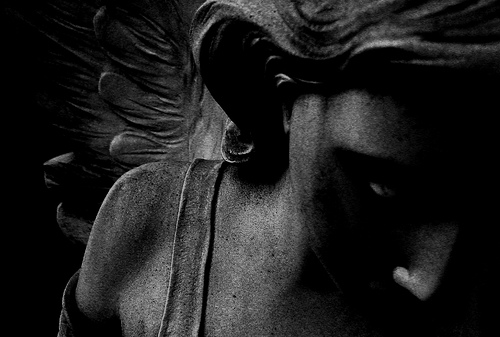We run our website the way we wished the whole internet worked: we provide high quality original content with no ads. We are funded solely by your direct support. Please consider supporting this project.
What Motivates Torture “In Jesus’ Name”?
Why has the church, at times, tortured and murdered people? What motivates killing and persecution “in the name of Jesus” or “for the glory of God”? (See the post from yesterday about how the church has tortured people.) A variety of political, social, and theological explanations could be offered, and they might all be valid. But the core motivation for this barbarism is the same as it is for all other forms of barbarism: idolatry.
This idolatry surfaced when Christian leaders derived some element of their core worth from the rightness of their beliefs—along with, no doubt, the value of their nationalism, the prestige of their positions, the luxury of their wealth and the power of their offices. Whatever affirmed, protected and advanced these idols was judged “good,” while whatever negated, threatened, or hindered these idols was judged “evil.” And since the stakes are often eternally high in religious idolatry, it seemed obvious to these leaders that they needed to glorify God by exterminating their enemies—Christ’s teachings about blessings and doing good to them notwithstanding.
As church history clearly demonstrates, unless self-sacrificial love is made the all-important doctrine that teaches us how to hold all of the rest of our orthodox beliefs, being orthodox provides no more protection against idolatry, judgment, and violence than does being unorthodox. This, again, simply illustrates the point that the Kingdom cannot be identified merely with orthodox religion, or any religion.
Jesus exposed this idolatry in a parable about a Pharisee and a tax collector at the temple (Lk 18:10-14). A Pharisee was inside the temple praying. He thanked God that he was “not like other people—robbers, evildoers, adulterers”—or like a certain tax collector standing outside the temple. In contrast to these sinners, the Pharisee reminded God that he fasted “twice a week” and gave “a tenth” of his income to the temple.
On the other hand, a tax collector stood outside the temple. He didn’t think himself worthy enough to even go inside. In fact, he didn’t even dare lift his face toward heaven when he prayed. He merely “beat his breast” and muttered, “God, have mercy on me, a sinner.”
Jesus said that the tax collector rather than the Pharisee “went home justified before God.” And so it will be, Jesus concludes, that “all those who exalt themselves will be humbled, and those who humble themselves will be exalted.”
The “holiness” of the Pharisee was a religious “holiness” that exalted itself by contrasting itself with others. The Pharisee—and this epitomizes all idolatrous religion—tried to ascribe worth to himself by detracting worth from others and by feeling special before God on this basis.
Religious idolaters have a pharisaical “holiness” that’s rooted in how they contrast with others. Jesus, on the other hand, manifested a holiness that was compatible with his deep identification with “sinners,” a holiness that was rooted in the life of God that embraces all others. It’s little wonder, therefore, that prostitutes, tax collectors, and other sinners steered clear of Pharisees and other religious leaders, but gravitated to Jesus.
Far from feeling like they received worth from religious leaders, tax collectors and prostitutes rightly sensed that they lost worth around them. Far form being fed life, these sorts of sinners felt they were used as a source of life for these people. In other words, these sinners felt judged.
How different things were around Jesus. Clearly, prostitutes and tax collectors knew this holy rabbi didn’t condone their sinful behavior, any more than he condoned the behavior of robbers, evildoers, and adulterers. Yet, Jesus didn’t get life from the fact that he wasn’t like them. This wasn’t his “holiness.” He didn’t need to get life by contrasting himself with others. He didn’t need the cheap, parasitic “holiness” of religion.
This is also why Jesus was free to love and serve people as they were. Because he didn’t need to derive worth from others, Jesus was free to ascribe unsurpassable worth to others. Again, this begins to explain why prostitutes and tax collectors wanted to hang out with him.
This is the unique and beautiful holiness of the Kingdom, and it contrasts with the ugly “holiness” of religion in the strongest possible way.
Category: General
Tags: Holiness, Humility, Idolatry, Judgment, Kingdom Living, Love, Religious Idolatry, Torture
Topics: Following Jesus
Related Reading

Participating in the Divine Nature (Love)
When God created the world, it obviously wasn’t to finally have someone to love, for God already had this, within himself. Rather God created the world to express the love he is and invite others in on this love. This purpose is most beautifully expressed in Jesus’ prayer in John 17. Jesus prays to his…

God’s Dream for the World
The future doesn’t yet exist—which is why it’s future instead of the present or past—this doesn’t mean I’m claiming the future is wide open. To the contrary, it’s very clear from Scripture that God has a great plan for the future, and this plan steers the course of history by setting limits on what can…

The Cost of Holding On
Given Greg’s recent Twitter comments on the question of how we view what we own, we thought this article in the New York Times was particularly timely. What is the cost of holding onto things? As we accumulate more and more possessions, do we pay a price beyond the actual price tag? Although this piece…

Sermon Clip: Generic God
“Let’s all just get along.” Is this what God and religion are really about? All we have to do is just be good to people? Almost all religions can agree on this, but it is a generic view of God. In this clip from Greg’s latest sermon, he talks about this generic view of God…

A Brief Theology of Faith
It is often argued that Hebrews 11:1 provides us with a clear definition of faith. The NIV translates it as, “Now faith is confidence in what we hope for and assurance about what we do not see.” Most of the times when we use different translations of the Bible, the differences between them are about…

God’s Heart to Prevent Judgment
In Ezekiel we read a passage that depicts Yahweh as warning his people about their impending punishment by saying, “I will pour out my wrath on you and breathe out my fiery anger against you” (Ezek 21:31a). As we find in several other texts, Yahweh is here depicted as a ferocious fire-breathing dragon—a portrait that…

